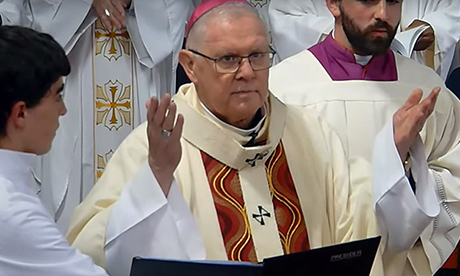In a recent interview, Brisbane Archbishop Mark Coleridge ignited a discussion within the Catholic community by proposing the exploration of pathways to priesthood for Indigenous men.
This proposition, which suggests a potential waiver of clerical celibacy, aims to foster greater inclusivity and representation of First Nations Australians within the Church.
The views of Archbishop Coleridge (pictured) were shared during an interview with The Australian newspaper.
However, he clarified that the sensationalist headline, “End of celibacy nigh, says Brisbane Catholic Archbishop Mark Coleridge,” may have exaggerated his statements.
“The headline went quite a way beyond what I actually said, but the article was fair enough,” Archbishop Coleridge said in a subsequent interview with The Catholic Leader.
“Clerical celibacy is an undoubted value”
While Archbishop Coleridge doesn’t foresee the complete abandonment of celibacy, he firmly believes that the question of its applicability is pertinent, particularly within Indigenous communities.
“Clerical celibacy is an undoubted value, but it’s not an absolute value,” he expressed.
“I have been more or less happily celibate through my life, and the Church would be greatly impoverished if celibacy were wholly abandoned.
“But the question is whether it should be mandatory for all, and the context of the question is the changing profile of the priesthood and the current needs of the People of God,” the Archbishop concluded.
As the immediate past president of the Australian Catholic Bishops’ Conference, Archbishop Coleridge’s insights carry substantial influence.
This becomes even more pertinent with the upcoming Synod on Synodality in Rome commencing in October.
Within this historical gathering, discussions surrounding clerical matters will undoubtedly play a crucial role.
In his interview with The Australian, Archbishop Coleridge candidly predicted that mandated priestly celibacy could see significant modifications. Although he couldn’t definitively pinpoint when or how this transformation might occur, he emphasised that the question itself demands attention and contemplation.
